
The Libertarian Futurist Society has announced the five finalists for the Best Novel category of the 43rd annual Prometheus Awards.
The Best Novel winner will receive an engraved plaque with a one-ounce gold coin. An online Prometheus awards ceremony is planned for August at a time and event to be announced.
Here are the five Best Novel finalists, listed in alphabetical order by author, with the LFS’ commentary explaining how they fit the distinctive focus of the Prometheus Awards:
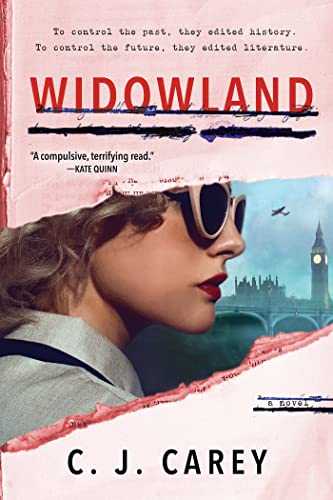
Widowland, by C.J. Carey (Quercus) – This dystopic alternate history focuses on oppressed castes of women in a Nazi-controlled Great Britain protectorate after World War II. The protagonist is an English woman working in a faceless bureaucracy to rewrite the novels of women such as Jane Austen, Emily Bronte and Louisa May Alcott. We see her dawning awareness and quiet resistance to the regime’s efforts to expunge from literature proto-feminist themes of independence that might threaten the new order of conformity, obedience and repression. Suspenseful and plausible in its plot, characterization and world-building, the novel goes an imaginative step beyond the focus of Orwell’s Nineteen Eighty-Four on news propaganda and history suppression to explore the bowdlerization of culture and suggest how classic literature and art inspire people to think for themselves and challenge authoritarian regimes.
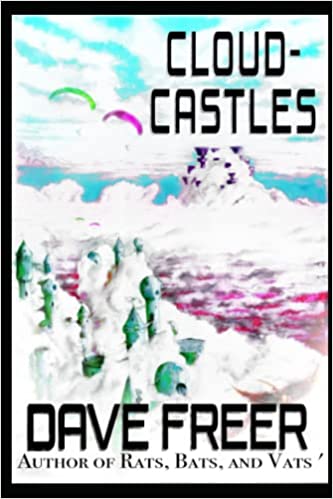
Cloud-Castles, by Dave Freer (Magic Isle Press) – Set on diverse habitats floating above a gas-giant planet, this zestful and often funny coming-of-age adventure charts the progress of a mis-educated, socially awkward and well-meaning young man, brilliant but naïve, thrust into a succession of strange human and alien cultures and life- and liberty-threatening situations. With help from a street-smart sidekick, he escapes imprisonment and slavery and forges innovative, profitable businesses with decentralized, stateless people scattered through the planet’s clouds. Through such entrepreneurship, cooperative individualism and fish-out-of-water encounters with an “outback” frontier culture reflecting the Australian novelist’s own heritage, the story (formally a comedy in structure according to classic Greek definition) reveals how markets work, why profits are moral and necessary in a free society and how societies flourish through reinvestment and market innovation.
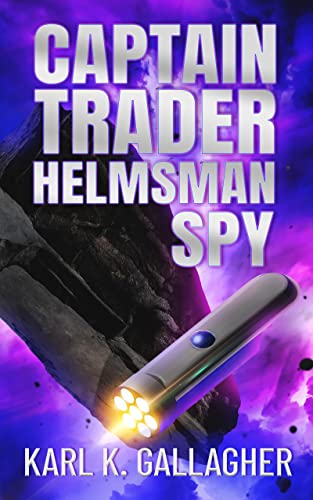
Captain Trader Helmsman Spy, by Karl. K. Gallagher (Kelt Haven Press) –The fourth novel in Gallagher’s Fall of the Censor series (Storm Between the Stars, Between Home and Ruin, and Seize What’s Held Dear, all previous finalists) explores how people cooperate voluntarily even in the underground niches of a statist system. The series portrays an interstellar war between a long-isolated alliance of solar systems with basically free societies and a vast empire that maintains control by continuously purging history and destroying older books. The title character is a starship captain commanding a spying expedition, disguised as a merchant venture, into enemy territory. The captain and crew strive to gain key information and insights about the aggressors while navigating their way under cover amid exotic human cultures with radically different customs and laws – including slaver societies and worlds where women oppress men.
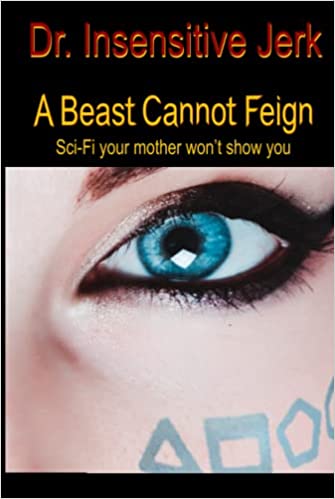
A Beast Cannot Feign, by “Dr. Insensitive Jerk” (AKA Gordon Hanka) (Amazon) – Provocative, politically incorrect and sometimes intentionally in poor taste, this satire weaves melodramatic villains and a critique of authoritarian progressive politics into a story of first contact. The “aliens” are actually genetically modified humans, mysteriously different in their customs and behavior, who have returned to Earth to establish a radically free colony against strong official resistance. The author explores the human capacity for self-deception, mocks the excesses of government regulation and bureaucracy, and as a cautionary tale, shows the tragedy of mutual misunderstandings that can spark conflict and violence between radically different cultures. This novel radically tests the nature and boundaries of coercion and consent – fundamental issues in libertarianism – as they might apply to the economy, government and sexual politics.
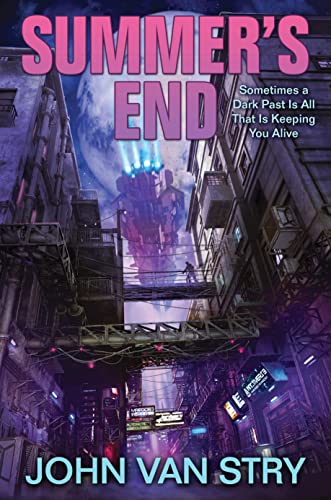
Summer’s End, by John Van Stry (Baen Books) – Notable for its unusually detailed focus on free-market economics and practical cost-versus-risk calculations affecting affordable spaceship travel and engine/gravity maintenance, this coming-of-age adventure weaves family issues, emerging friendships, class differences, political conflicts, straight and gay romance, humor and clashing cultures into a Heinlein-juvenile-style hero’s journey. The well-paced tale is told through the eyes of a young engineering-school graduate, a former gang member struggling to reform his violent impulses and escape low-class “Prole” origins, who has lots to learn after taking an apprentice-level job on an old tramp steamer plying trade routes among habitats and moons throughout the solar system (including libertarian communities on Ceres). Struggling to apply what he’s learned, the engineer hopes to liberate his genius brother from a corrupt and repressive society on Earth.
Fifteen novels were nominated by LFS members for this year’s award, virtually all published in 2022, with one published in the last two months of 2021, eligible under the rules.
The other nominees were: The School for Good Mothers, by Jessamine Chan (Simon & Schuster); Let Us Tell You Again, by Mackey Chandler (Amazon); Entropy, by Dana Hayward (Amazon); The Master Code, by T.A. Hunter (Amazon); Our Missing Hearts, by Celeste Ng (Penguin Press); Openings: A Hayek Chronicles Novel, by James S. Peet (self-published); Sisters of the Vast Black and Sisters of the Forsaken Stars (a combined nomination), by Lina Rather (Tor Books, Tordotcom); The Warrior Worlds, by Stephen Renneberg (Amazon); Ex Supra, by Tony Stark (Amazon); and Termination Shock, by Neal Stephenson (William Morrow).
The Prometheus Award, sponsored by the Libertarian Futurist Society (LFS), was established and first presented in 1979, making it one of the most enduring awards after the Nebula and Hugo awards, and one of the oldest fan-based awards currently given in sf. The Prometheus Hall of Fame category for Best Classic Fiction, launched in 1983, is presented annually with the Best Novel category.
All LFS members have the right to nominate eligible works for the Prometheus Awards. A 12-person judging committee, drawn from the membership, selects the Prometheus Award finalists for Best Novel. Following the selection of finalists, all LFS upper-level members (Benefactors, Sponsors and Full Members) have the right to vote on the Best Novel finalist slate to choose the annual winner.
The LFS says these are the kinds of work recognized by the Prometheus Award –
For more than four decades, the Prometheus Awards have recognized outstanding works of science fiction and fantasy that dramatize the perennial conflict between Liberty and Power, favor voluntary cooperation over institutionalized coercion, expose the abuses and excesses of coercive government, critique or satirize authoritarian ideas, or champion individual rights and freedoms as the ethical and practical foundation for peace, prosperity, progress, justice, mutual respect, and civilization itself.
A full list of past Prometheus Award winners in all categories is here. For reviews and commentary on these and other works of interest to the LFS, visit the Prometheus blog.
[Based on a press release.]
Discover more from File 770
Subscribe to get the latest posts sent to your email.

Clickity
Use of pseudonym “Dr insensitive jerk” is a marketing mistake. I’m rolling my eyes before I even read the synopsis. A couple of these sound enjoyable. I like a solid cloud city story.
c4c
Also, may have to give John Van Stry another try. His Champion for Hire LitRPG novel was OK, but had flaws.
Regards,
Dann
Whatever crushes individuality is despotism, by whatever name it may be called and whether it professes to be enforcing the will of God or the injunctions of men. John Stuart Mill
@Dann665 “Also, may have to give John Van Stry another try. His Champion for Hire LitRPG novel was OK, but had flaws.”
A quote that repeatedly comes to mind: “The novel is a prose narrative of some length that has something wrong with it.” — Randall Jarrell.
@David Langford
True. I agree.
The only question is the “something wrong” a minor nit to be picked (and probably best ignored in the first place) or a Hoover Dam-sized obstacle to reader enjoyment. For those that enjoy the LitRPG sub-genre, I recommend giving Champion for Hire a shot. I don’t regret the time spent reading it and it was certainly better than other LitRPG books that I’ve read.
At the same time, I don’t want to set expectations too high for SF/F fans unfamiliar with his work.
Regards,
Dann
This tagline deleted due to lack of interest.
I just reserved Widowland at the library. That sounds interesting.